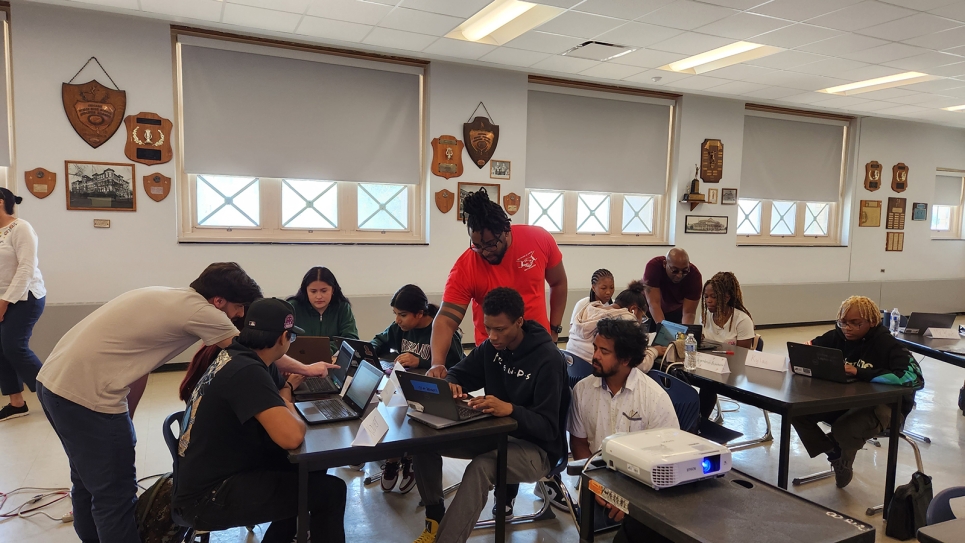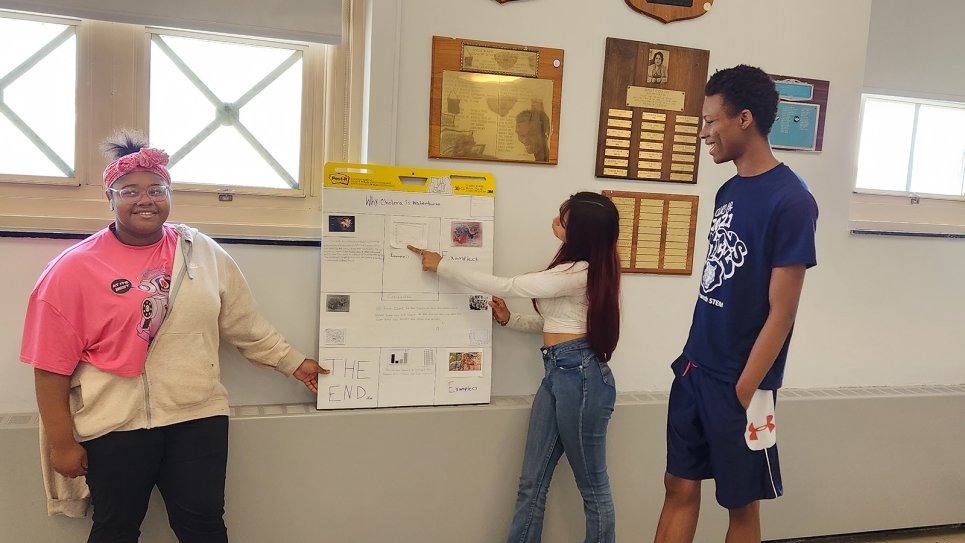“Enabling teachers to introduce data science into the high school classroom is tremendous,” said Michael Papka, professor of computer science at the University of Illinois-Chicago and the director of the ALCF. “I’m so happy that ALCF has been part of this journey; while we have worked with hundreds of students, by engaging with teachers, we will enable thousands. Allowing teachers to bring data science knowledge to all their future classes will give the students a tremendous head start.”
Now that the three weeks are over, teachers will continue to develop data science curricula for their high school classrooms. All the while, they will receive ongoing support from Argonne.
“I plan to take the activities and skills we were introduced to at the institute, and implement them into my AP computer science classes,” said Emmanuel Medina, a computer science teacher at Curie Metropolitan High School. “With minor modifications, these lessons will help students develop their analytical skills, build critical thinking skills, and engage their knowledge with real world events and issues.”
This work was supported in part by the DOE’s, Office of Science, Office of Workforce Development for Teachers and Scientists (WDTS) through the Reaching a New Energy Sciences Workforce (RENEW) Initiative. The work also used the ALCF, supported by DOE’s Office of Advanced Scientific Computing Research (ASCR).
==========
The Argonne Leadership Computing Facility provides supercomputing capabilities to the scientific and engineering community to advance fundamental discovery and understanding in a broad range of disciplines. Supported by the U.S. Department of Energy’s (DOE’s) Office of Science, Advanced Scientific Computing Research (ASCR) program, the ALCF is one of two DOE Leadership Computing Facilities in the nation dedicated to open science.
Argonne National Laboratory seeks solutions to pressing national problems in science and technology. The nation's first national laboratory, Argonne conducts leading-edge basic and applied scientific research in virtually every scientific discipline. Argonne researchers work closely with researchers from hundreds of companies, universities, and federal, state and municipal agencies to help them solve their specific problems, advance America's scientific leadership and prepare the nation for a better future. With employees from more than 60 nations, Argonne is managed by UChicago Argonne, LLC for the U.S. Department of Energy's Office of Science.
The U.S. Department of Energy's Office of Science is the single largest supporter of basic research in the physical sciences in the United States and is working to address some of the most pressing challenges of our time. For more information, visit https://energy.gov/science


